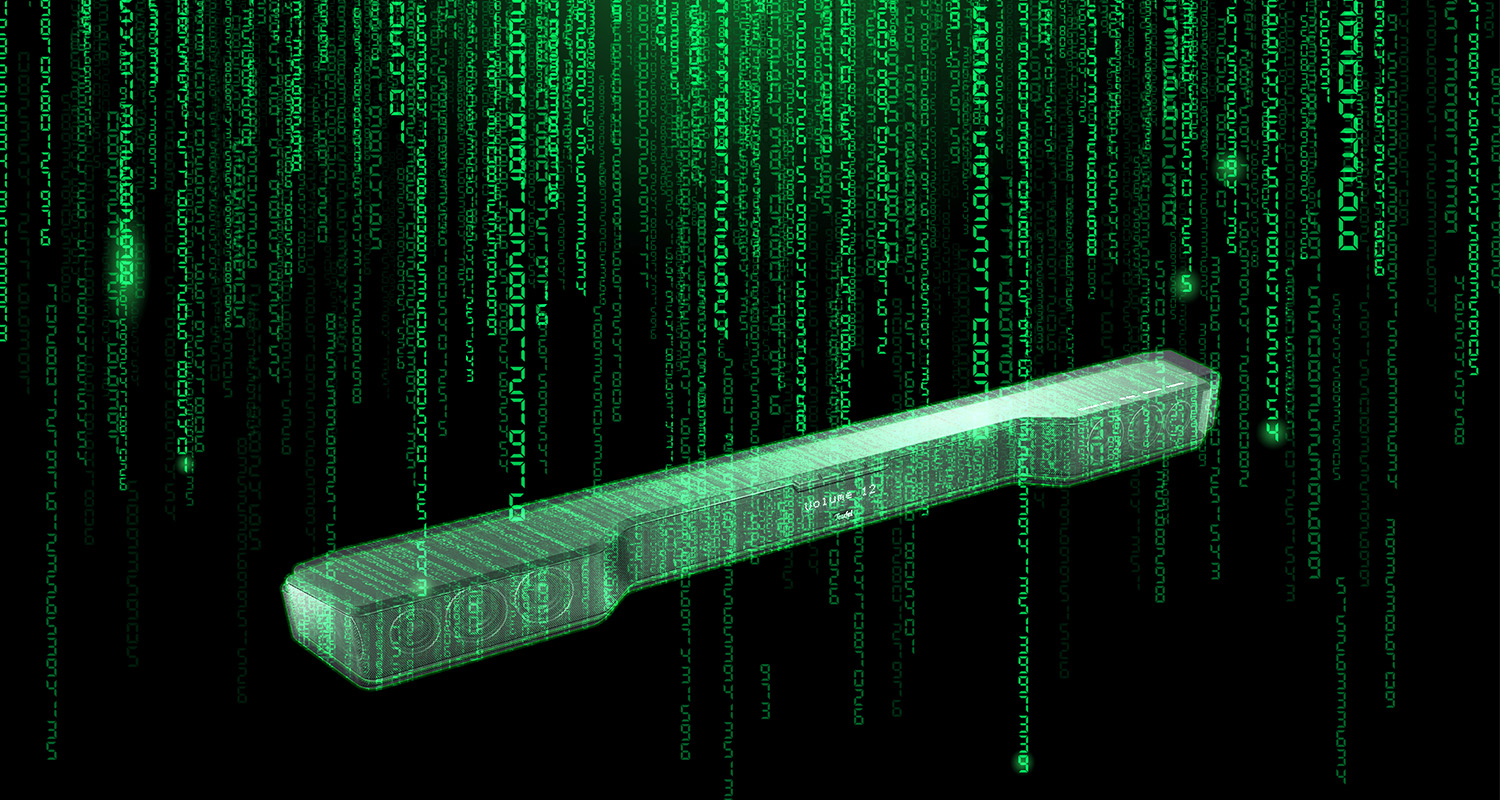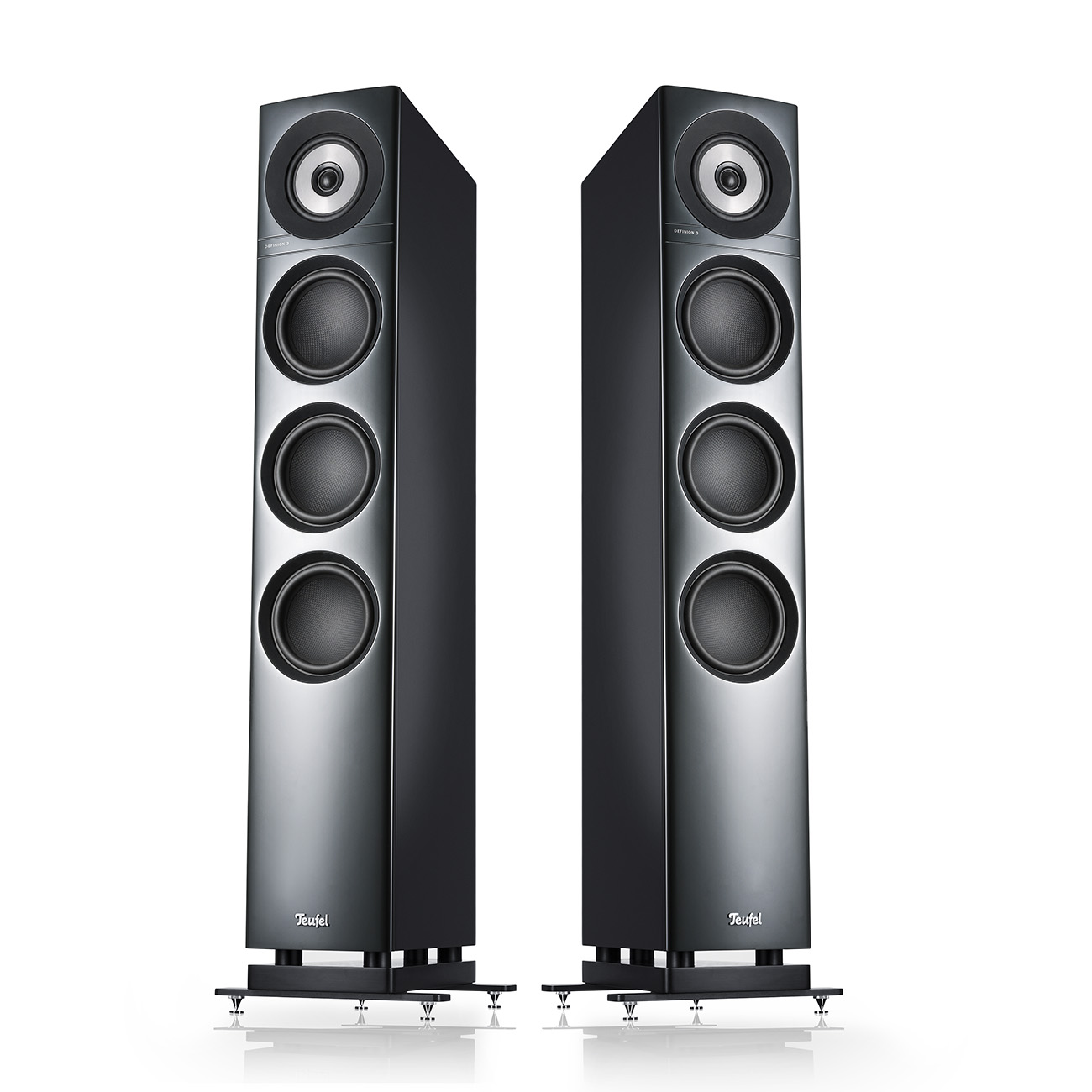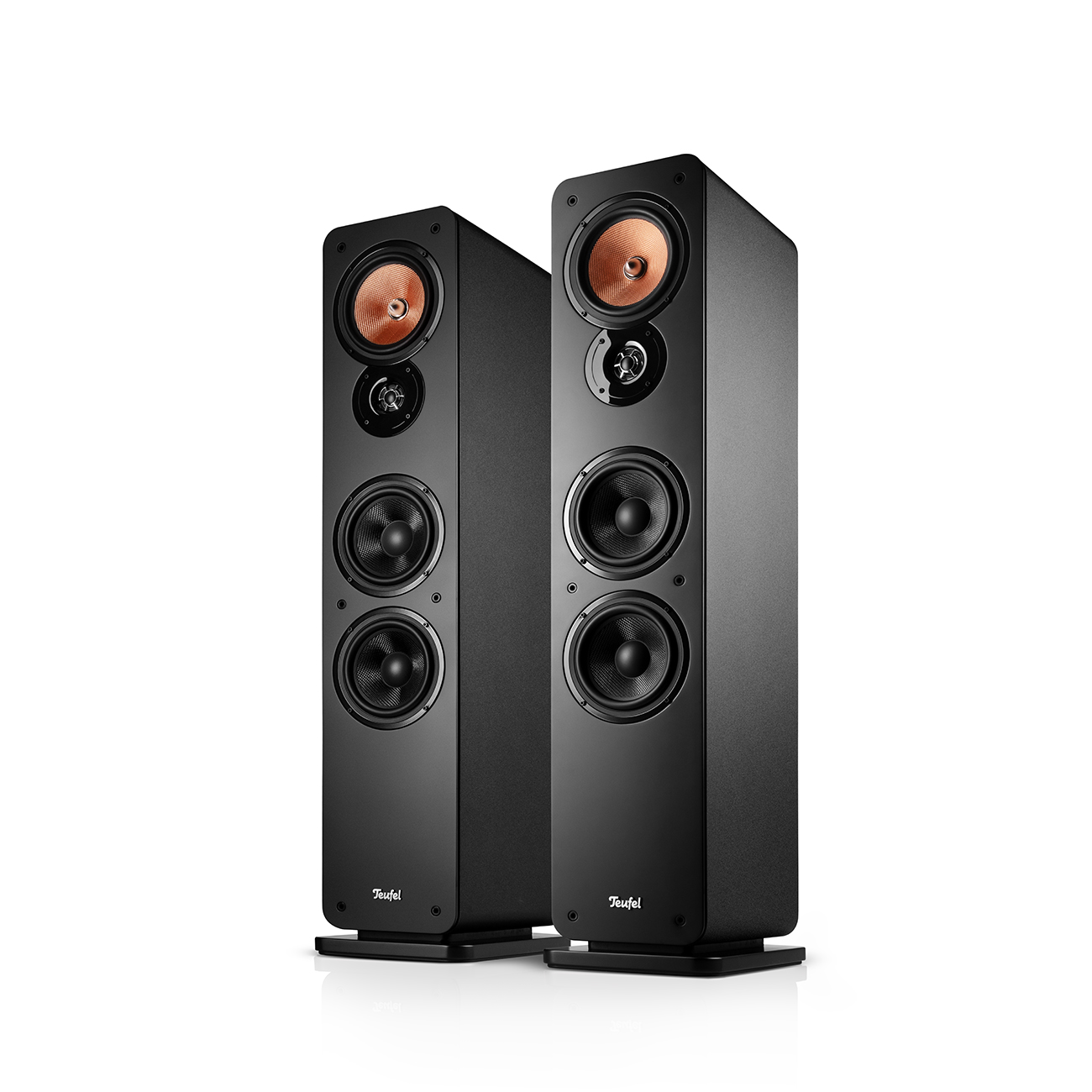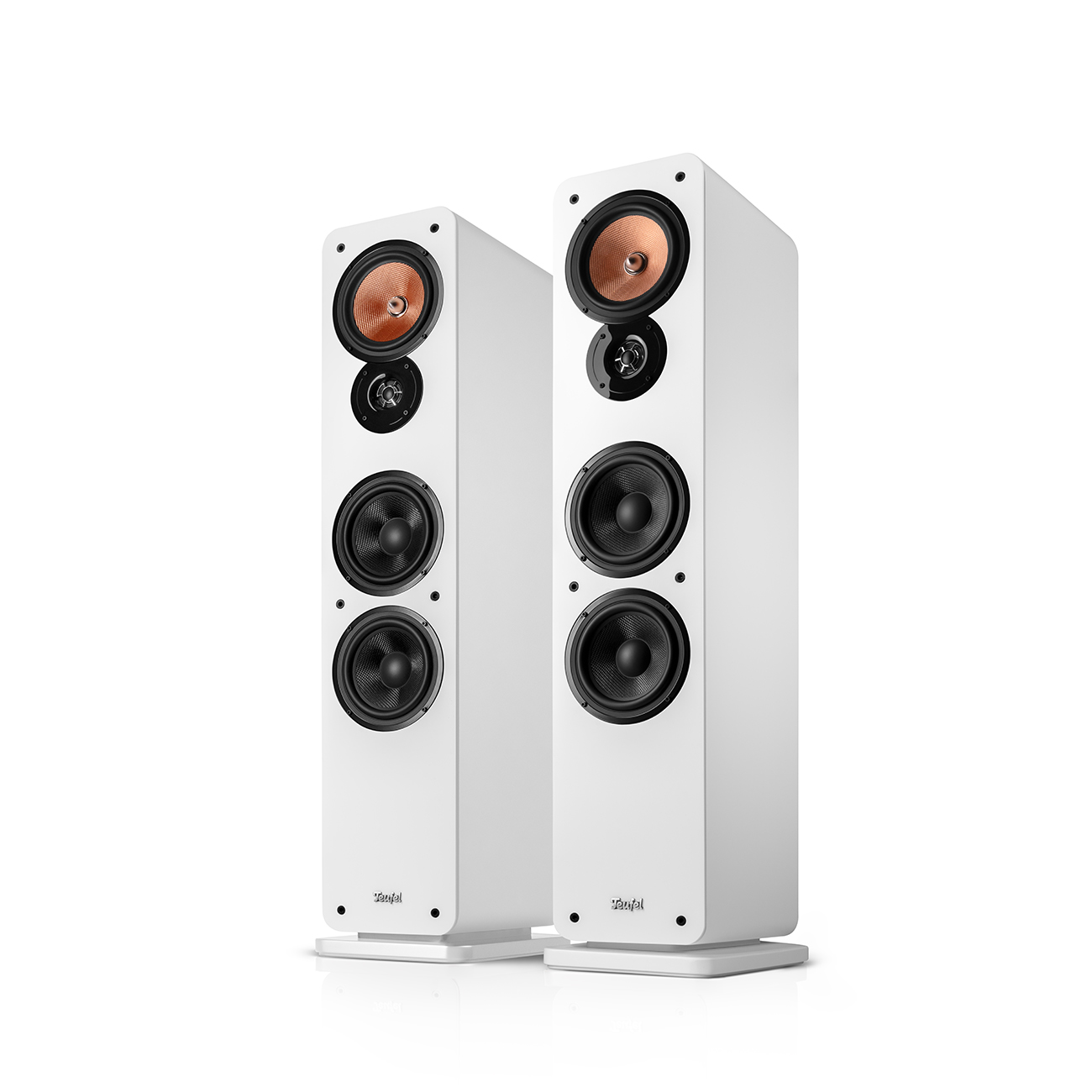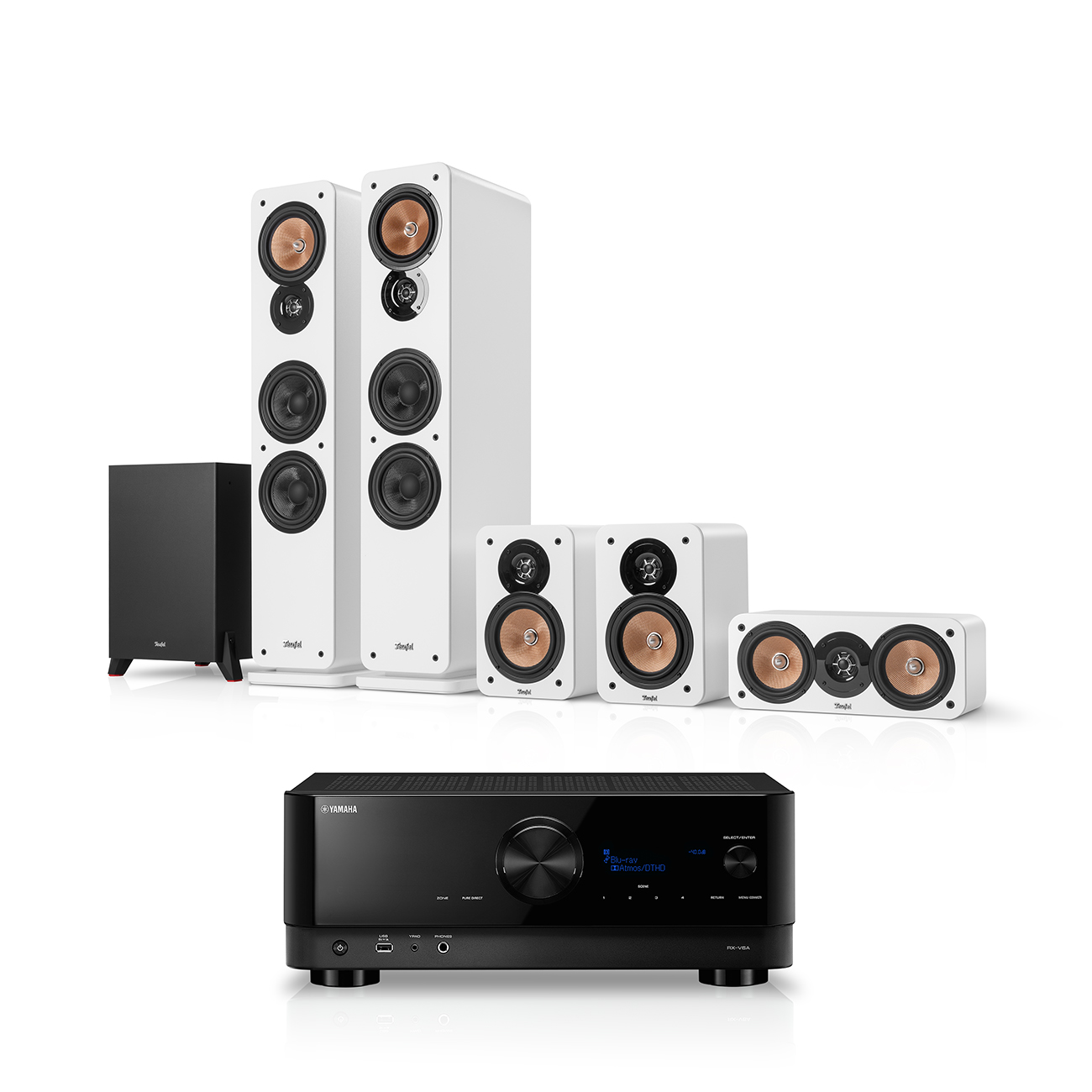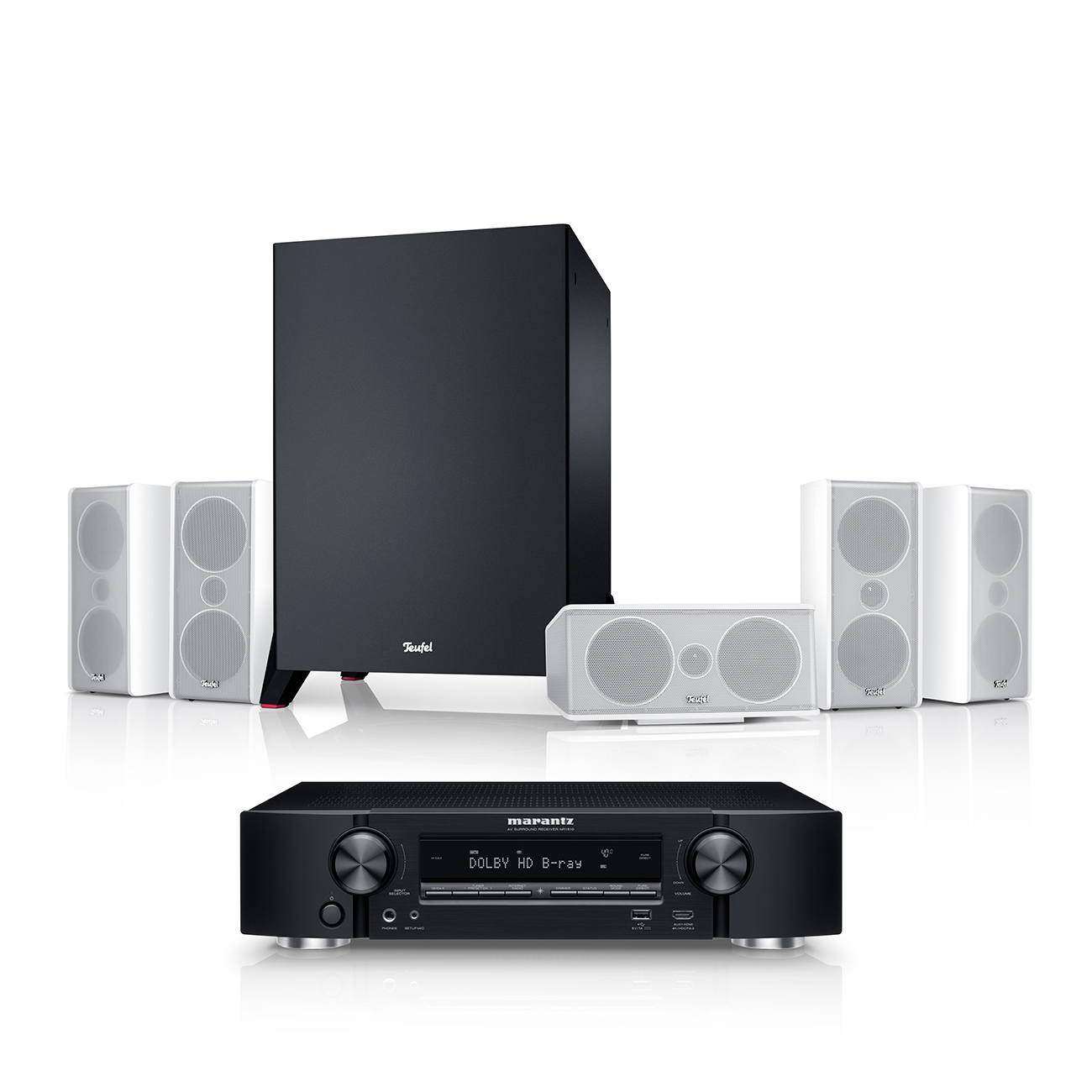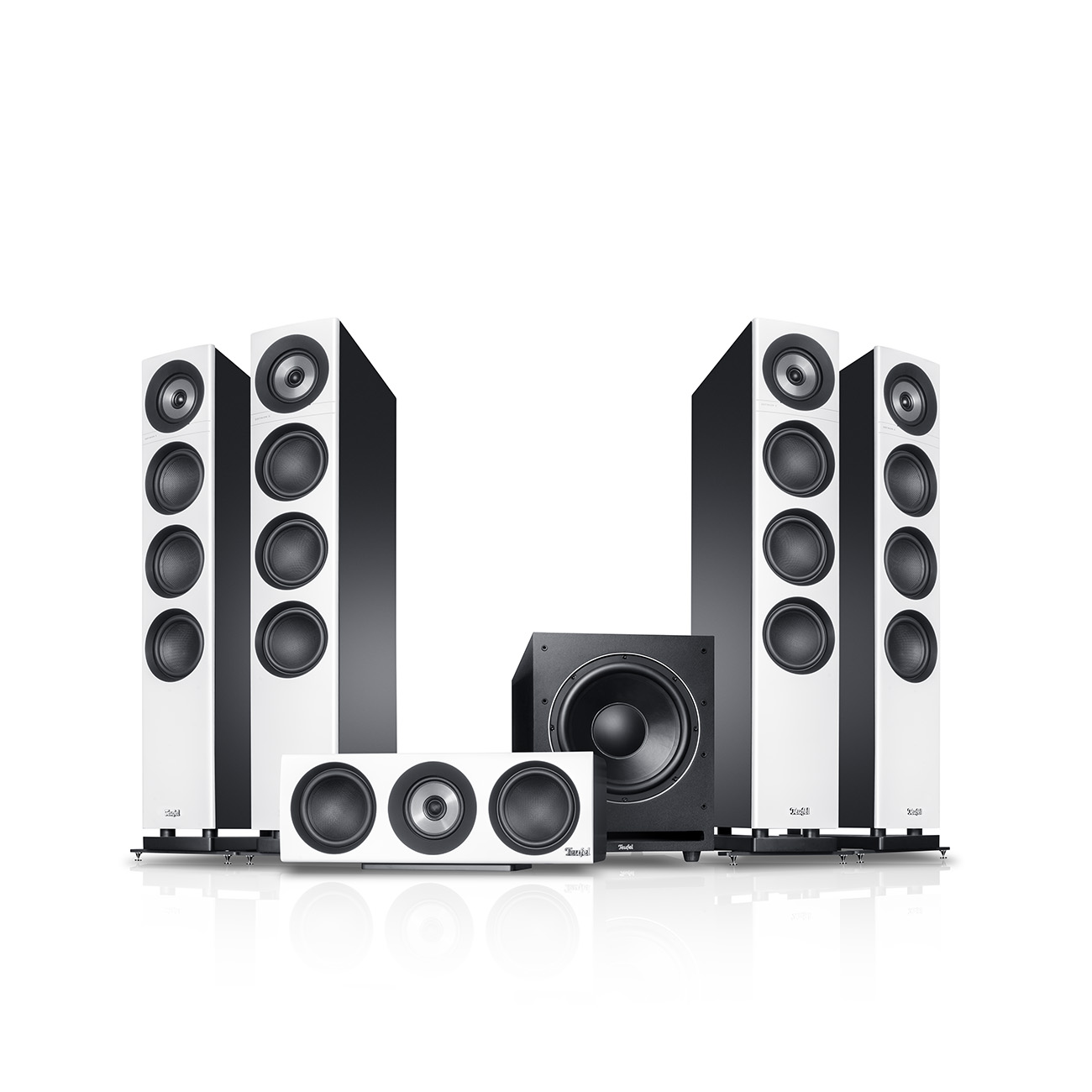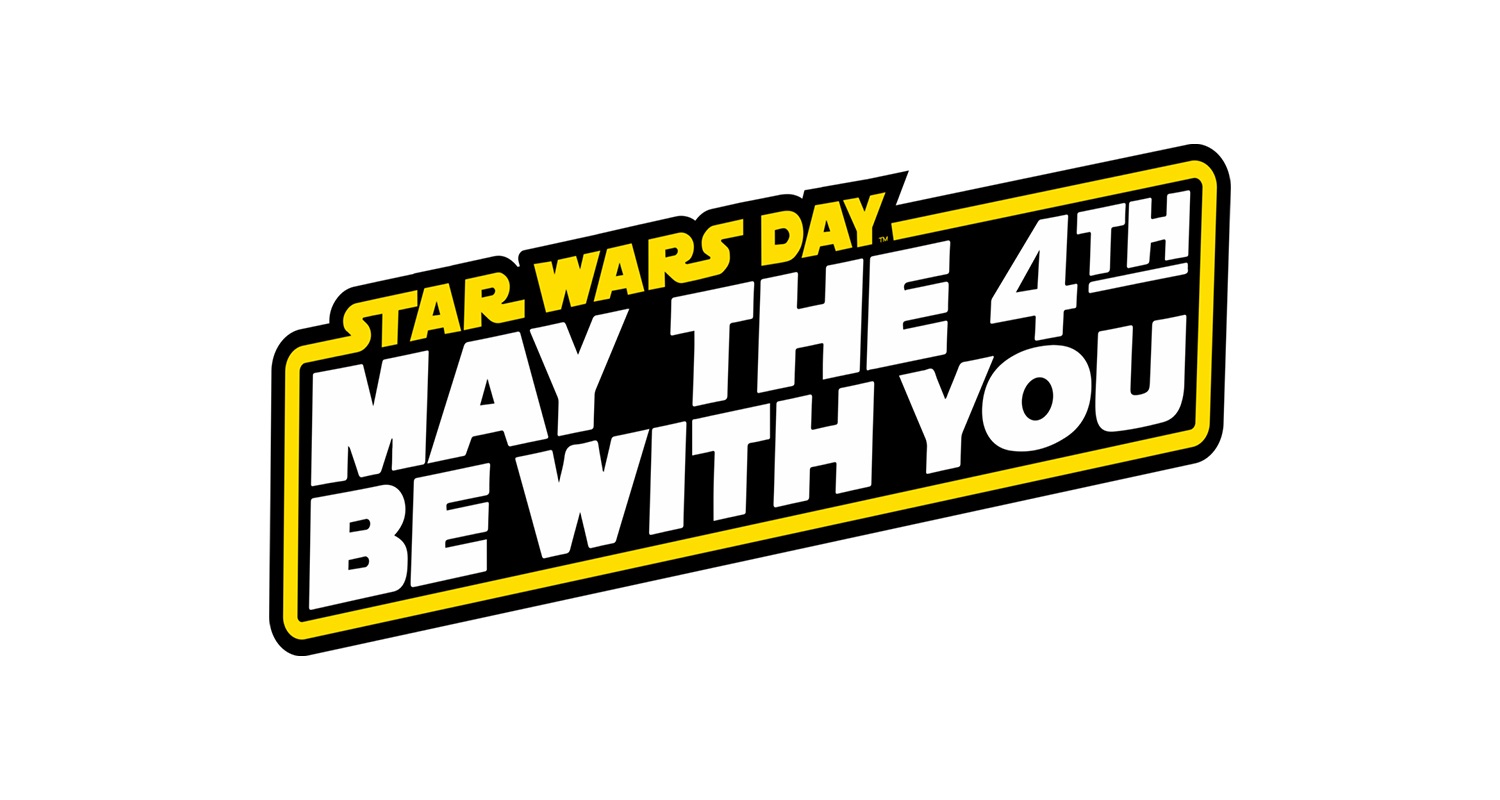The feared chaos caused by the millennium bug on January 1, 2000 failed to materialize, but the hysteria was still trend-setting, because in the years to come nothing would run without computers and the World Wide Web. The first decade of the new millennium was marked by digital change. MP3 made music compatible with the Internet and suddenly brought the CD out and put music labels under pressure. Teufel’s first Soundbar soon provided cinematic pleasure at home throughout Europe and the Concept C was the solution against flat PC beeps.
Phone, Laptop, MP3 Player
The tech trends of 2000 saw phones, notebooks and mp3 players take center stage. With a not-so-smart phone suddenly people could do two things: make calls anywhere, and send short messages.
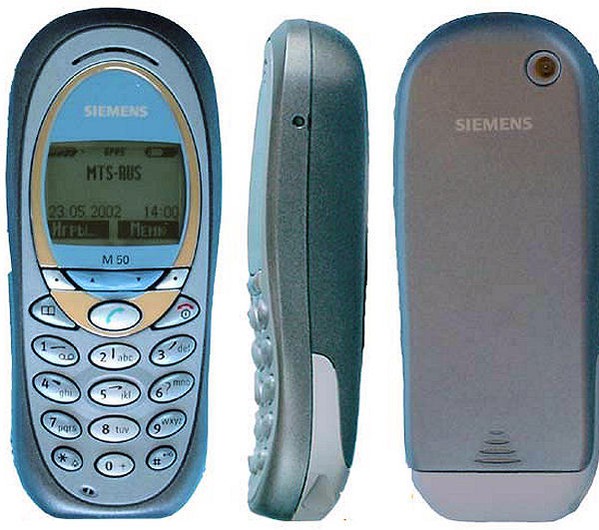
Amongst this is the iPod that came out in October 2001 with a limited memory, which now in the time of online streaming services can only be laughed at. However, back then, the iPod knocked the Walkman off the top shelf.
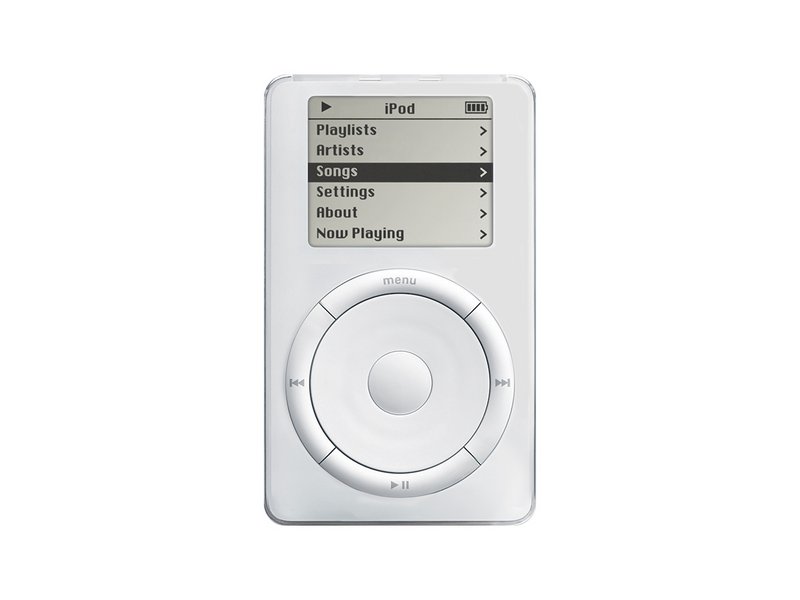
MP3 and Napster changes the music world
At the start 2000s the CD audio format had a major competitor – the MP3. The digital format seemed to end the rule of analogue audio format. The 1999 founded online changing powerful, Napster within a short time turned the music industry on its head. Why not swap music digitally, instead of swap CDs? That was exactly the thought of 19 computer science student Shawn Fanning. But again and again the university servers collapsed under the data load. So Fanning developed her own platform.
The birth of music streaming
From then on we could freely exchange our favourite music online via his platform and this was the begins of the Napster community. This was the birth of streaming media. It meant users could obtain hard to get songs. By the start of 2001, there were 80 million users. The free-of-charge exchange of music from hard disk to hard disk was of course not welcomed warmly by record labels.
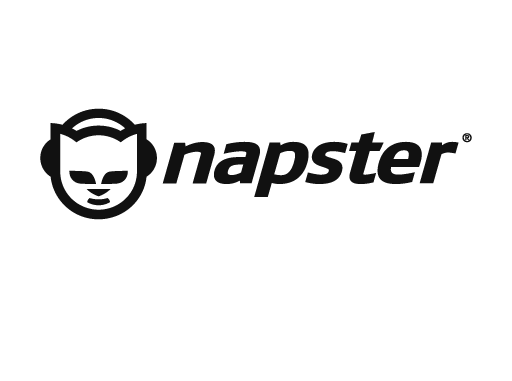
Napster vs copyright
Napster sparked a heated debate over copyright. The record labels branded Napster and his users as music pirates. Supporters countered that Napster gave unknown artists and bands without a record contract a chance. Prince got involved. On his website he said it was not surprising that music lovers bypass record companies. After all, record labels shouldn’t decide what music fans have to hear.
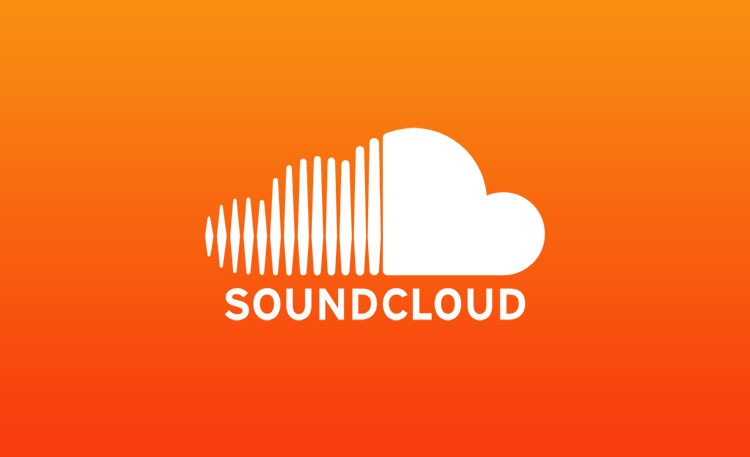
Music start-ups specializing in digital distribution such as SoundCloud (founded in 2007) had to overcome a few hurdles before the idea of a subscriber-based streaming service found its way into the Internet world. Today, music streaming is a matter of course thanks to smartphones, WIFI and better storage capacities. The intermediate step via MP3 is superfluous and physical storage media are almost superfluous.
Teufel goes online – the web store
The 2000s were a time of technical innovation. The Internet connected people, offered a new shopping experience through online shopping and opened up new sales channels. Teufel had been using this opportunity since 1997. In the 2000s the Teufel online store reached more and more fans. By 2006, we had become Europe’s largest online provider, directly supplying fans of the good Berlin sound.
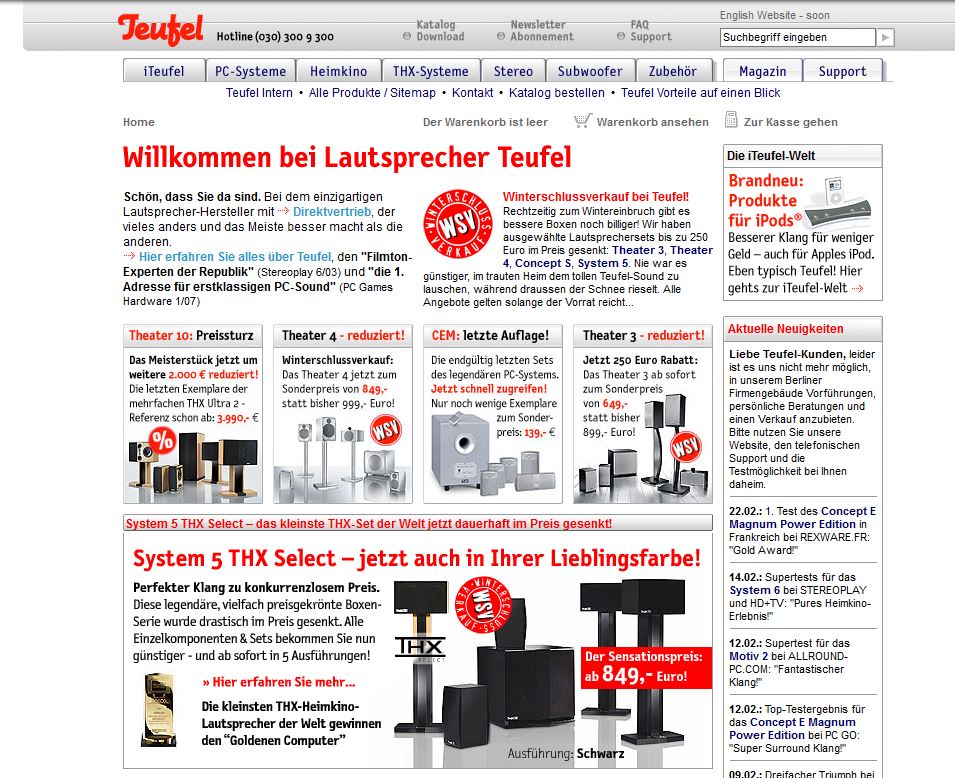
Teufel Sound for the computer
Anyone who remembers the first laptop models knows that acoustics usually offered little more than underground beeping. Of course, Teufel stayed up to date in terms of audio technology and relied on sound on the computer, for example with the Concept C. The ever-growing gamer community loved the Concept C, our first 2.1 PC sound system.
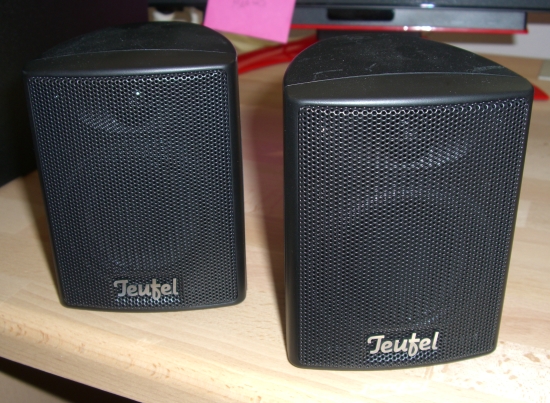
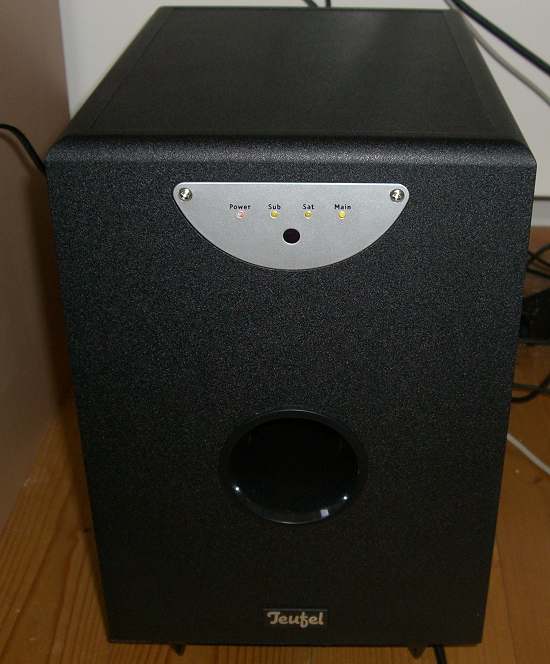
Millennium music: from the casting couch to pop star
The music of the 2000s was dominated by pop singers and bands just like the Spice Girls did in the 1990s. Many of them coming from talent shows, such as X Factor. One example being Leona Lewis from 2006’s X Factor.
The eccentric performances of Lady Gaga and M.I.A. at the end of the 2000s were more subversive and with feminist tones.
In terms of musical styles, the 2000s were a decade of upheavals and continuities at the same time. Unlike previous decades, it can hardly be broken down into a few style-forming genres. The music of the 2000s made use of guitar-heavy sounds of the 1970s, synth pop of the 1980s and techno beats of the 1990s. Colourful style mixes conquered the charts. R’n’B, hip-hop and dance floor gained popularity in a new sound garb. Among the greatest hits of the 2000s were Hey Ya! and Ms. Jackson from OutKast. The hip-hop duo made use of rock elements, funky offbeat, cool rap interludes and provided good vibrations in the clubs.
At the end of the decade, DJs like David Guetta celebrated endless chart success. At the same time the stars queued up in his recording studio. Guetta created a catchy synthesis of euro dance and techno of the 1990s. His recipe for success: synthetic sounds, house beats, hand clap sounds and vocals with catchy choruses.
Premium-class floorstanding speakers
Indie-Music & Rock’n’Roll revival
“Rock’n’Roll is not dead” was the name of the game at the beginning of the new millennium. Many musicians entered a classical band constellation again. Some loved unpolished sounds and flippant singers with punk attitude, others catchy riffs and concise vocals.

It all started with the electrifying guitar rock of The Strokes. They were followed by The Libertines, Franz Ferdinand and The White Stripes. With overly short and worn skinny jeans, greasy leather jackets, retro sunglasses and Converse chucks, they performed casually. They made the grunge look hip. The British quartet Arctic Monkeys became one of the most successful bands of the 2000s. With I Bet You Look Good On The Dance floor they landed a huge hit.
German indie pop found many fans. Many German bands of the 2000s sang in their mother tongue. We are heroes, Silbermond, Juli and Tomte wrote their songs with love for poetic language images.
Concept S: elegant and quality sound
“The listener of today is demanding – a loudspeaker set that has what it takes to become a real bestseller must therefore not only sound good, but look chic and be not too expensive.” – This is how AREA DVD wrote in 2004 during its introductory test of the then new Concept S.
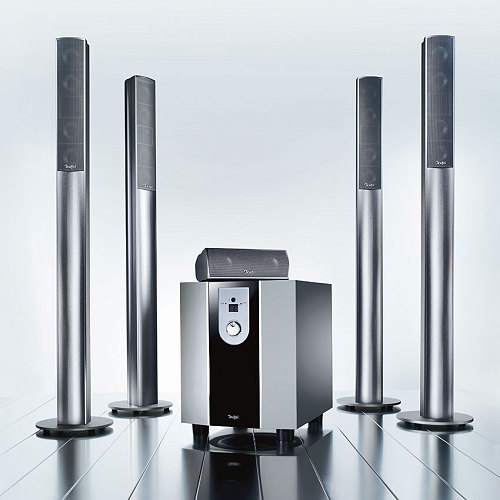
Teufel’s first soundbar plays the sound of the millennium
Especially the indie cinema flourished in the 2000s. Cinema lovers celebrated the rich colors and perfectly composed film images of the melancholic love film In the Mood for Love (2000). Director Wong Kar-wai was immediately treated as a representative of an Asian Nouvelle Vague. Memento (2000), the psychodrama about a continuous loss of memory, fascinated many viewers. David Lynch’s Mulholland Drive (2001) was a mysterious one. Darren Aronofsky’s Requiem for a Dream (2000) disturbed and inspired with innovative editing techniques. With Good Bye, Lenin! (2003) and Head-On (2004), new German cult films were made during the decade. And to make this movie experience even better, Teufel’s first soundbar hit the market.
Martial art fans and cinema goers got their money’s worth with Quentin Tarantino’s revenge epic Kill Bill. James Cameron set new standards with his computer-animated 3D film Avatar (2009). The Matrix film series (since 1999) belongs to the most influential films of the new millennium.
As diverse as the millennium films were, in many places home cinema still sounded so simple. The big solution with five satellites and subwoofer was not everyone’s cup of tea anymore. Too much effort, too much technology in the living room. The solution came with the Teufel’s first soundbar. Teufel successfully followed the trend and started his Cinebar series with the Cinebar 50.
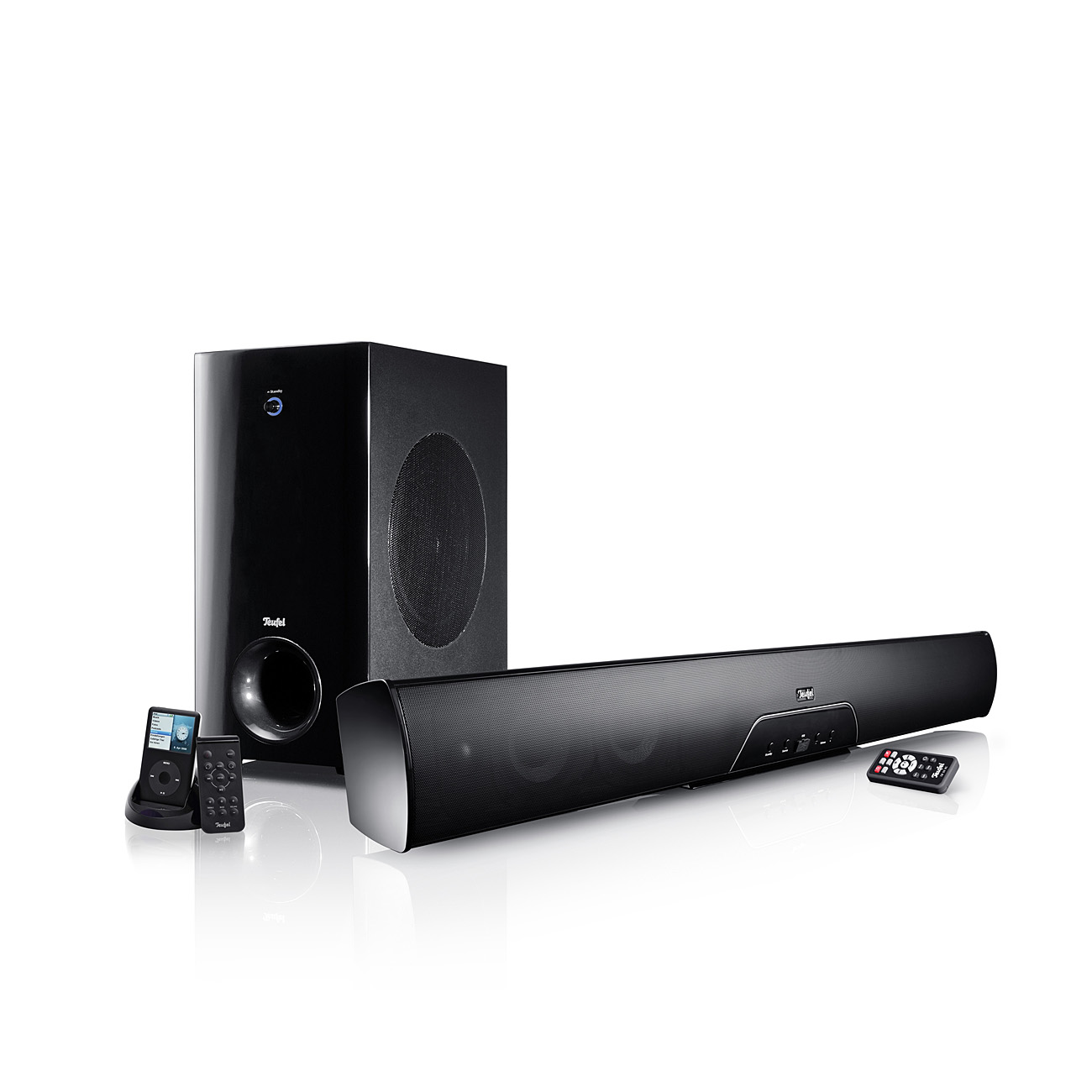
> 45 Years of Teufel part 1 – the 80’s
> 45 Years of Teufel part 2 – the 90’s
> 45 Years of Teufel part 4 – the 2010’s to today
Sound systems for film fans
Image 2: ©Joshua Fuller certain rights applyOpens in new tab. Source: UnsplashOpens in new tab
